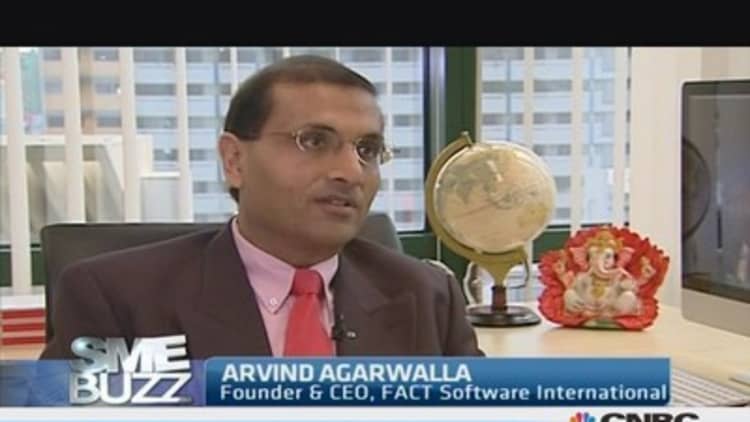In March 2008, Ky Wright and Owain Williams, two school friends turned business partners from Tenby, a sleepy seaside town in south Wales, took a leap into the unknown. After eight years selling their homemade frozen yogurt from trikes and ice cream vans, they upped sticks, moved to Brighton, Sussex and set up Lick, the U.K.'s first frozen yogurt shop.
"The frustration of doing what we were doing with the mobile units was that when it rained, we had to pack everything up," Wright told CNBC.com. "We thought that if we had a proper shop, we could create a bit of a movement. And Brighton seemed like the perfect place, a brand incubating place."
With a recent joint study by PricewaterhouseCoopers and the Local Data Company revealing that shops on U.K. high streets are closing at a rate of 18 per day, many entrepreneurs will no doubt agonize over the idea of taking the plunge and opening somewhere to sell their own products.
(Read more: Has the UK become the 'number 1' place to start a business?)
"There are obvious challenges," Andre Spicer, Professor of Organisational Behaviour at Cass Business School, London, told CNBC.com. "We have to start out with the fact that 9 out of 10 entrepreneurs fail. So just starting a business and selling a product, there are high degrees of failure there. Adding risk on top of that and starting a store is doubling your bets."

Yet for many small-and medium-sized enterprises (SMEs), opening a shop is sometimes the only way to gain significant exposure, to get consumers eating their frozen yogurt or wearing their hand knitted jumpers. "The retail chain locks a lot of small distributors out," Spicer added. "So if you think about the food sector, or clothing and so forth, small businesses who have wonderful products aren't able to get to market. Opening your own store is an alternative route to market, a way of getting around the big stores."
By sidestepping larger retailers, companies with their own shops can also form a close relationship with their clientele and create a strong identity. "If you're developing a product and just sticking it in a shop, you never know what people think about it," Wright said. "We had thousands of customers coming through the shop all the time, giving their honest feedback on what we were doing. It was massively helpful with product development."
(Read more: Want to get rich? One entrepreneur says do it on your own)
Entrepreneurs need to think very carefully, however, about whether their numbers add up before deciding to launch a retail space. There's no getting around it: opening a shop is expensive. "You've got to fund the losses, you've got to fund the deposit, you've got to fund the stock, you've got to fund the shop fit," Charles Denton, CEO of skincare company Erno Laszlo, told CNBC's The Business Class. "There wouldn't be much change out of that."
And they should be under no illusion that, for all the benefits, running a store is hard, hard work. "The shop was profitable from day one and our running costs were really low," Wright said. "We were living above the shop to start with and we both worked all day, every single day. We didn't take any money out of the business ourselves, apart from the bare minimum to survive on."
Should, then, every SME open up its own shop? "No," Spicer said. "First of all you need to think about your product: if building an experience and community around that product is really vital and something you can't do online, then opening a store is a really good option. But if it's more of a commodity, and more about just getting the product out there, then a store is probably not ideal."
(Read more: Forget campfires, more kids heading to entrepreneur camp)
Wright and Williams closed their shop at the end of September, but for the right reasons. Theirs is a good news story. With tubs of Lick now being sold throughout the U.K. and stocked by big retailers such as Ocado and Sainsbury's, they have decided to shut up shop so they can devote all of their time to expanding, focusing on production and distribution.
And if they had to do it all over again, would they change anything? "What I would do – if I was starting again from scratch – is stuff like pop up shops, or food stalls in places like Borough Market, which don't have constant, on-going overheads. If the reason you're doing it is to get customer feedback and some brand awareness, then that stuff can all be better done using pop up shops, without having the commitment of being locked into an actual premises."

